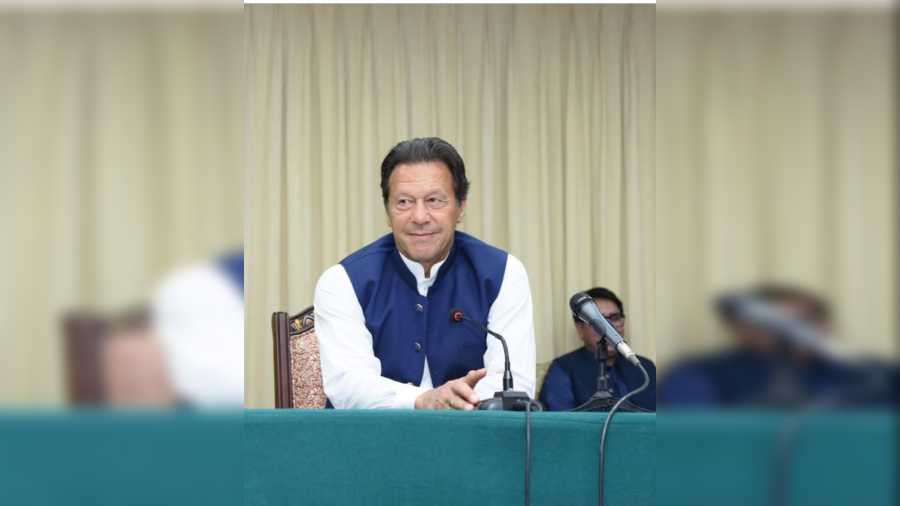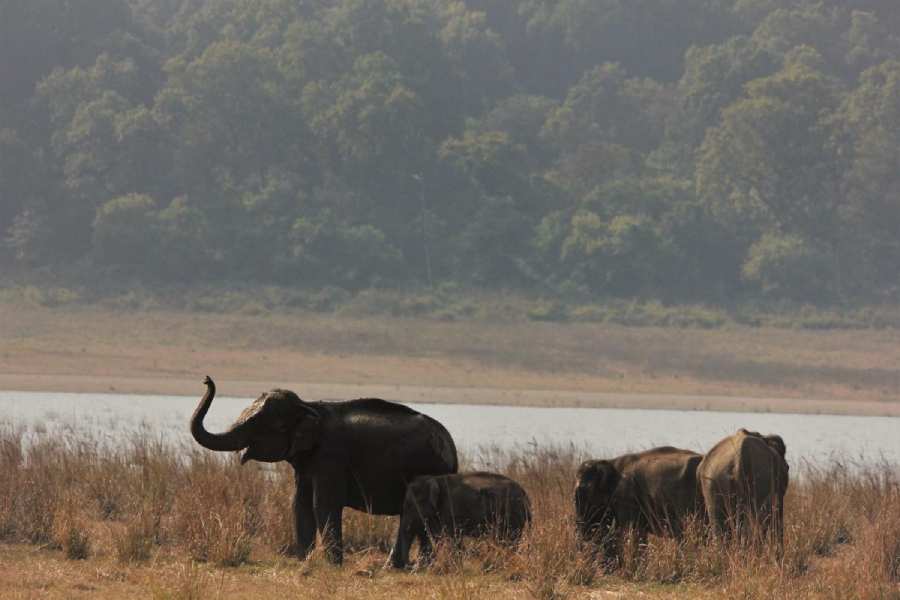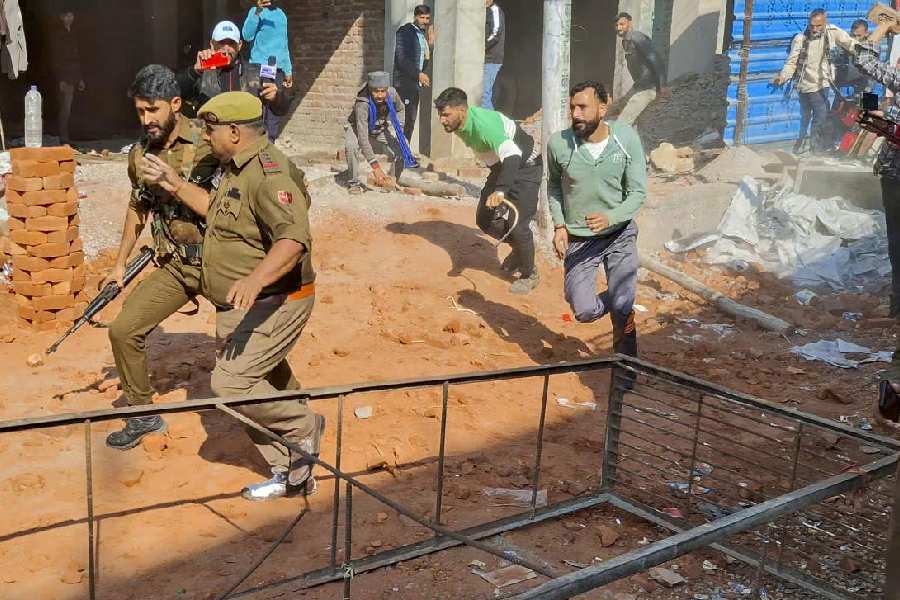There’s one Golden Rule in Pakistan politics. Never ever pick a fight with the army. Its tanks will flatten you.
Every Pakistani politician has learnt the hard way not to mess with the generals. But Imran Khan is refusing to call it quits. As he declared in a speech last Friday: "I fight to the last ball." That last ball is now in the Supreme Court.
Khan kept his most unreadable googly till last. His ally, the National Assembly Deputy Speaker, first dismissed a no-confidence motion submitted by the Opposition on the grounds it was anti-national. Moments later, the House was dissolved, requiring new national elections.
Was this Khan’s brilliant googly or a no-ball? Commented Dawn newspaper: “It takes quite a fall for a self-proclaimed ‘fighter’ to display such unsportsmanlike behaviour. By tearing up the rules of the game instead of, ‘playing till the last ball’, Mr Khan has dealt a fatal blow to constitutionalism and given rise to the strongest concerns yet that he may not be suited to hold public office within a democratic order.”
Will he get away with what appears to be a blatantly unconstitutional move? The Supreme Court is already in session and is hearing a challenge to Sunday’s dramatic ploy. Khan’s supporters and legal advisors argue that the Speaker’s actions in the National Assembly cannot be questioned by the courts.
On the other hand, a clause was inserted in the Constitution back in 2010 specifically to prevent this sort of situation. The clause stipulates that the Speaker cannot dissolve the house when there is a no-confidence motion before it.
Khan also moved quickly on Monday and nominated the former Chief Justice of Pakistan, Gulzar Ahmed, as his candidate to play the role of caretaker prime minister. Opposition leader Shehbaz Sharif, (Nawaz’s brother) who’s tipped as the army’s favourite to replace Khan, hasn’t yet put forward any proposal for caretaker prime minister. Significantly, Ahmed was the judge in the Panama Papers in which Nawaz Sharif was embroiled.
The ex-cricketer, who remains caretaker prime minister, has tipped Pakistan into a full-blown constitutional crisis and now the courts will have to untangle the mess he’s created. Where did Khan go wrong? The answer is in every way possible way.
The economy now is worse straits than before he took office in 2018 as a populist reformer who’d undergone a religious awakening following a life in the celebrity fast lane. He proclaimed he was going to end Pakistan’s boom-bust cycles which he has – Pakistan right now is just bust.
More seriously he crossed the Pakistan Army Chief, General Javid Bajwa. When exactly their relationship began to deteriorate isn’t clear, but it became sharply visible when the army chief ordered the transfer of Faiz Hamid out of the all-powerful ISI spy service. Khan had been cultivating Hamid and sat on the transfer order for several weeks. The delay was an unheard-of slight to the army chief.
It’s said Khan had plans to appoint the relatively junior Hamid as army chief at some point. There’s also been a split between Khan and the army over foreign policy with Bajwa calling for better US ties and criticising Russia’s invasion of Ukraine. Khan has been improving ties with both Beijing and Moscow – he visited the Russian capital hours before President Vladimir Putin launched his deadly assault on Ukraine and declared to TV cameras with a wide smile: “So much excitement.”. (Earlier Khan has a "foreign power" of being behind attempts to oust him but now has dropped all pretense and is accuse the US of trying to engineer "regime change, He has specifically named a State Department official Donald Lu as being involved in a ‘foreign conspiracy’ to topple his government.
Khan has been holding one more card up his sleeve. It’s believed he’d signed a letter ordering the dismissal of General Bajwa and kept it in his drawer. There’s been considerable speculation in recent days about whether Khan might make a sudden move to sack Bajwa (who’s on his second extension) and then made an audacious move to bring in Hamid – promoting him over the head of several more senior officers.
In the old days, the army’s response to that would have been to send Islamabad’s 111 Brigade to the prime minister’s house – the infantry brigade is known for its frequent involvement in military coups – and one or two TV stations and dismiss Khan summarily.
Now, though, coups have gone out of fashion. The army prefers to operate behind the cover of a civilian government. It keeps a tight grip on defence and foreign policy and gives the elected government a bit of manoeuvring room in other areas.
What’s more, even the army knows the economic situation is a poisoned chalice and there are no strongarm tactics to solve this. That knowledge keeps them in their barracks. Inflation is at record highs while annual growth has sunk from 5.8 per cent when Khan took office to 0.53 per cent in 2020, according to World Bank data.
The rupee has lost half its value against the dollar – it’s trading now at around Rs 184 to the greenback. The fact that Pakistan has had to import the raw materials required for its large-scale industries with a much weaker currency has blown a massive hole in its balance of payments.
It’s important to note Khan can’t be entirely blamed for the problems as the pandemic also hammered the economy. Still, it’s become abundantly clear that the cricket captain who led his team to many wins couldn’t transfer his leadership skills to the world of politics.
It’s generally thought he was manoeuvred into the prime minister’s chair with a bit of help from the army. But he displayed his autocratic colours right from the start.
“Few governments in Pakistan’s recent history began their term with Khan’s advantages. He had unqualified support from the military, widespread public goodwill, control of Punjab, a divided and demoralised opposition,” notes columnist Maleeha Lodhi. Then again, “few governments so quickly underwhelmed its supporters and disappointed others,” Lodhi adds.
Then, there’s the Afghan situation. Here Pakistan got exactly what it wanted but it looks like it is now unable to control its murderous proteges in that country. The consequent economic deprivation in Afghanistan desperately needs international aid to alleviate the misery. Unfortunately, for the Afghans, the world’s attention is now focused on Ukraine and Pakistan must expect more uncertainty next door and more refugees crossing into its territory.
If there’s an election, it’s hard to tell right now who might emerge the winner. Khan clearly thinks the public will still back him. The army’s choice to replace him seems to be Shehbaz Sharif. Like Nawaz, Shebhaz’s also been surrounded by a swirl of corruption allegations. But he’s considered a friendly face by the army and he has the backing of Bilawal Bhutto Zardari, Benazir’s son.
Could Khan win his faceoff with the army? It seems extremely unlikely. But it does look as if the army also has not done its homework properly. How could the Deputy Speaker do what Khan’s bidding when it was clear the army wanted the prime minister out? And is President Arif Alvi also leaning towards Khan?
In the last year, there have been indications that Pakistan and India are working towards a better relationship. Amazingly, there’s been no shelling across the border for a full year. The question is whether the peace moves were being led by Khan or Bajwa?











